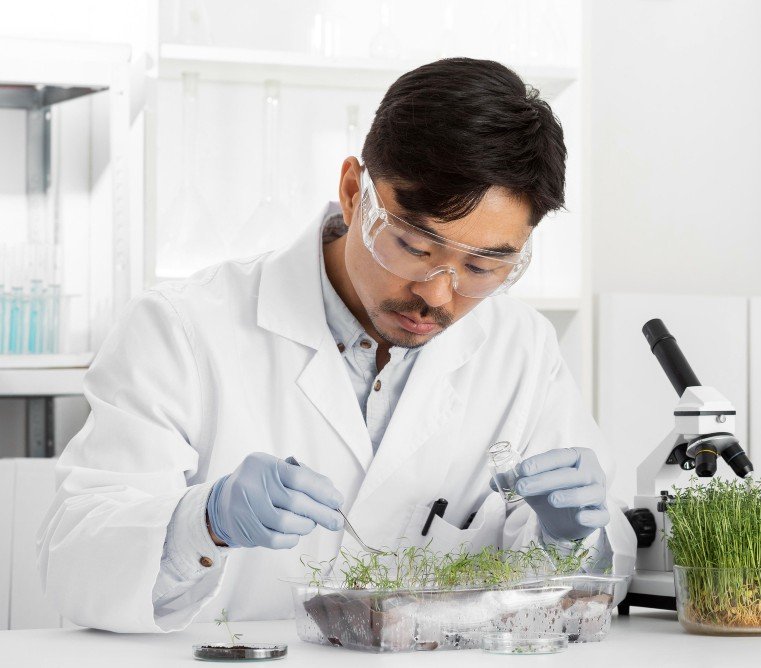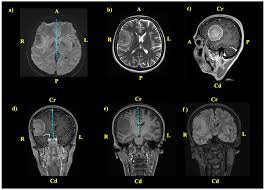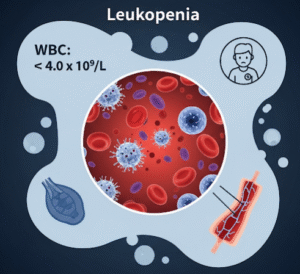For centuries, ginseng has been one of Korea’s most prized medicinal plants, celebrated for its restorative and strengthening properties. Today, modern Korean scientists are uncovering the molecular secrets behind this ancient herb, translating traditional knowledge into clinical evidence.
Recent research reveals how ginseng supports immunity, energy, metabolism, and cognitive function. With advanced biotechnology, Korea continues to lead global ginseng innovation, turning tradition into modern science.
Ginseng at a Glance
Korean or Panax ginseng contains powerful compounds called ginsenosides, along with polysaccharides, peptides, and antioxidants that influence multiple body systems. Modern studies explore these compounds in relation to chronic diseases, fatigue, stress, and even post-viral recovery.
The current wave of research focuses on refining cultivation, improving extract quality, and understanding how ginseng interacts with the body at the cellular level.
Ginseng and Blood Sugar Control
A growing body of evidence shows ginseng’s potential in blood sugar management and metabolic health.
Korean clinical trials involving adults with prediabetes have shown that standardized red ginseng extracts can help lower fasting glucose and improve insulin sensitivity. Participants who took ginseng for several weeks demonstrated better blood sugar stability and hormonal balance, particularly in markers like insulin and adiponectin.
Scientists found that ginsenosides enhance insulin signaling and reduce oxidative stress in liver and muscle cells. This may help prevent early-stage diabetes and support people struggling with metabolic syndrome.
In addition, ginseng appears to support lipid metabolism by moderating LDL cholesterol and improving the balance between good and bad fats in the blood.
Ginseng for Fatigue and Recovery
Another major research focus is ginseng’s role in reducing fatigue and boosting recovery.
Korean studies have reported that healthy adults taking hydroponically grown red ginseng for several weeks experienced lower stress levels and improved cognitive alertness. These effects may stem from better regulation of the hypothalamic-pituitary-adrenal (HPA) axis, which controls stress responses.
Some scientists also observed that ginseng helped improve symptoms of post-viral fatigue and general weakness, including in people recovering from long-term infections. Participants reported more sustained energy and better concentration after supplementation.
Mental Health and Cognitive Function
Recent laboratory and clinical studies suggest that ginseng supports brain health in several ways.
Regular consumption of red ginseng has been linked to improved short-term memory, mental clarity, and reaction speed. Researchers attribute these effects to ginsenosides that enhance blood flow to the brain and reduce inflammation in neural tissues.
Ginseng may also lower stress hormones like cortisol and promote a balanced mood. Some findings indicate that individuals taking ginseng experience a calmer emotional state and better resilience during high-pressure tasks.
Black Ginseng and New Extraction Techniques
Korean scientists have also developed black ginseng, a specialized form of ginseng created through repeated steaming and drying processes. This method increases concentrations of rare ginsenosides such as Rg3, Rg5, and Rk1, which show strong antioxidant and anti-inflammatory effects.
Studies show that black ginseng may provide enhanced benefits for immune regulation, anti-aging, and liver protection. Animal studies indicate that these compounds reduce inflammation markers and improve energy metabolism, suggesting future potential for chronic disease management.
Advances in hydroponic and controlled-environment cultivation now allow precise regulation of soil quality, humidity, and temperature, producing consistent ginseng roots with higher potency. This innovation ensures product reliability for both research and industry.
Mechanisms Behind Ginseng’s Effects
At the molecular level, ginsenosides are the main active agents responsible for ginseng’s health-promoting properties. When ingested, they are metabolized by gut bacteria into compounds that influence multiple signaling pathways.
- ❂ Ginsenosides can activate the Nrf2 pathway, which strengthens the body’s antioxidant defense system.
- ❂ They inhibit NF-κB, a key molecule in inflammation, thereby reducing inflammatory responses.
- ❂ They enhance mitochondrial energy production, supporting endurance and vitality.
- ❂ They modulate insulin and IGF-1 signaling, which affect metabolism and cell longevity.
Another recently identified compound, gintonin, is gaining attention for its neuroprotective properties. Gintonin acts on specific receptors in the brain and may support memory and cognitive performance, making it a promising target for future research on aging and dementia.
Safety and Limitations
Although ginseng is generally considered safe, researchers continue to study its long-term effects. Most clinical trials to date have lasted between 4 and 12 weeks, and more research is needed to confirm sustained outcomes.
Ginseng may interact with certain medications, including anticoagulants, diabetes drugs, and blood pressure medications. Therefore, healthcare professionals recommend consulting a doctor before prolonged use, especially for people with chronic conditions.
Overall, adverse effects are rare and mild, such as occasional insomnia or digestive discomfort, which typically resolve when the dosage is adjusted.
Industrial and Commercial Innovation
Korea’s ginseng industry is transforming alongside its research. Companies are investing in standardization and product validation to ensure consistency in ginsenoside content.
Functional health foods and nutraceuticals derived from ginseng now target specific wellness areas such as immune support, blood sugar balance, and mental performance. Korean manufacturers increasingly rely on verified clinical data to back product claims, reflecting a strong alignment between science and industry.
Export demand for Korean red ginseng remains high due to its reputation for purity and quality. New forms, such as capsules, granules, and ready-to-drink tonics, make consumption easier for modern consumers.
Practical Recommendations
For those considering ginseng supplements:
- ❂ Choose standardized extracts that specify ginsenoside content.
- ❂ Look for Korean Panax ginseng rather than other species for evidence-backed benefits.
- ❂ Follow recommended dosages from trusted sources or healthcare providers.
- ❂ Be patient — ginseng’s effects build gradually over consistent use.
- ❂ Pair with healthy habits such as balanced diet, regular sleep, and stress management for the best results.
Healthcare professionals suggest viewing ginseng as a supportive therapy rather than a cure-all. Its real strength lies in promoting balance and resilience in the body.
The Future of Ginseng Research in Korea
Korean scientists are now exploring how ginseng can be used in personalized nutrition — tailoring extracts to individual metabolic profiles and gut microbiomes. Artificial intelligence and genomic analysis are helping predict who responds best to specific formulations.
There’s also growing interest in combining ginseng with other traditional herbs to create synergistic effects for energy, immunity, and aging. Research teams are testing how these combinations influence hormones, brain chemistry, and immune cells.
Conclusion
Ginseng’s journey from traditional medicine to scientific validation is one of Korea’s greatest success stories in modern health research. The latest studies show that this ancient root continues to reveal new therapeutic potential — from managing blood sugar to improving mental well-being.
As biotechnology advances, Korean scientists remain at the forefront of unlocking the full power of ginseng. For consumers, this means greater access to safe, effective, and evidence-based herbal solutions that bridge tradition with modern science.













